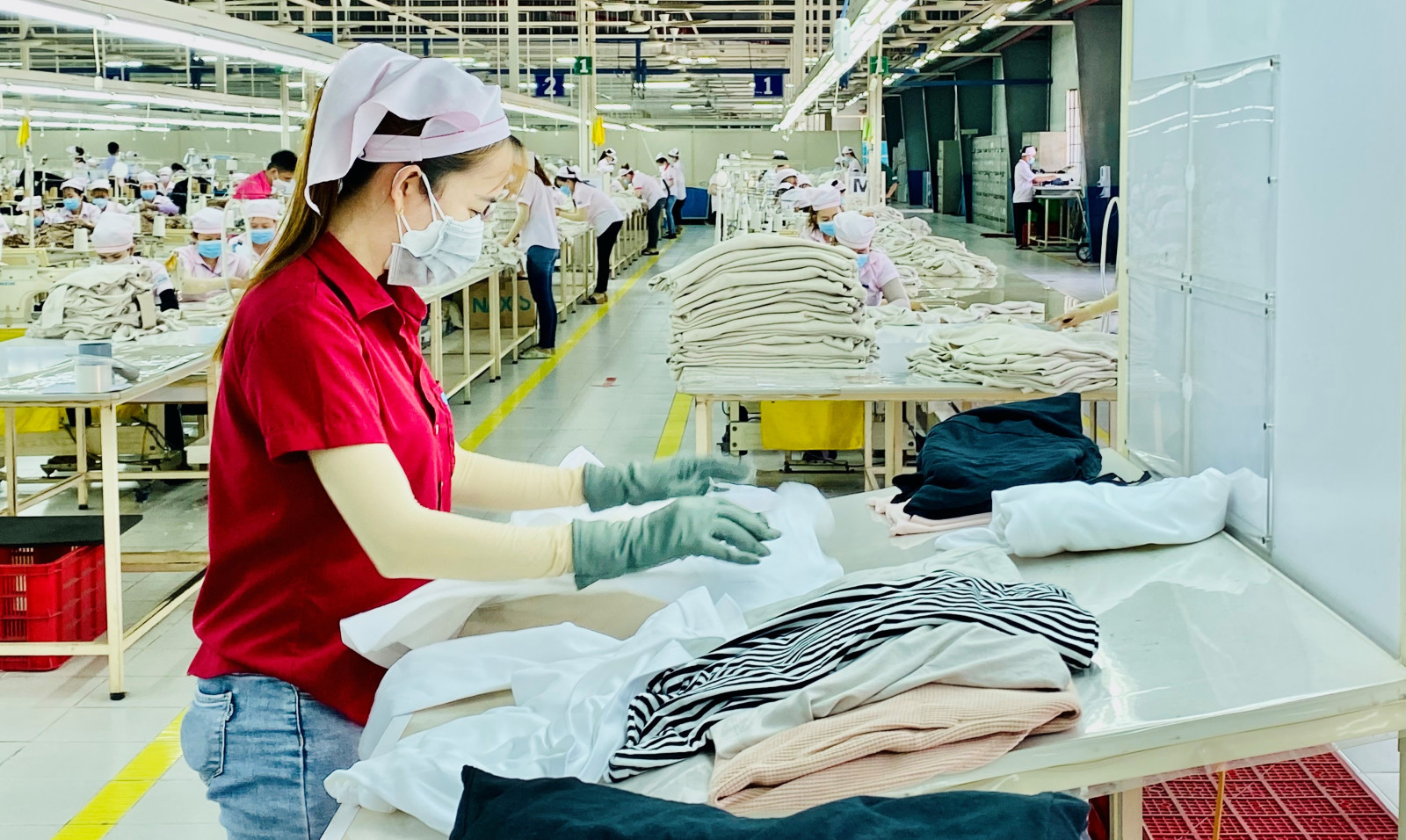Businesses focus efforts on new development phase
The recovery of the industrial sector and the growth of exports have emerged as bright spots in Binh Duong’s economic landscape for 2024. However, sustaining and expanding market share in major markets during this new phase of development requires businesses to consider technological transformation and improvement in the production environment as both a driving force and an opportunity to refine and elevate product quality.
Relentlessly greening production chain
According to Nguyen Minh Nhat, Director of Nhat Nam Plywood Mechanical Company in Ben Cat city, the company has seen its orders double compared to the same period last year. However, it also faces significant challenges in exporting to demanding markets such as the United States. The company remains steadfast in its goal of greening the production chain, strictly managing production and business operations, effectively identifying and mitigating risks and ensuring that no unforeseen circumstances hinder its development.

Production activities at Panko Vina Garment Company in My Phuoc II Industrial Park
"Beyond being bound by legal and customer requirements, we are acutely aware of the necessity and responsibility of sustainable development, considering it as a 'survival' condition to gain a competitive edge in the future", said Mr. Nhat. "In the current phase, if Vietnamese enterprises meet export market standards, they can secure a new position in the global supply chain for the wood industry. Wood industry businesses are receiving positive signals from the U.S. market, but must also be vigilant about trade defense risks related to product origin", he added.
Phan Le Diem Trang, Vice Chairwoman of Binh Duong Textile and Garment Association noted that businesses must simultaneously operate and stay updated on export market trends, fluctuations and new development situations to minimize risks. Adjusting short-term production plans allows companies to closely follow with market demands and minimize inventory levels. Member enterprises of the Textile and Garment Association understand that stable production and business operations require long-term preparation, including securing raw materials to immediately ramp up capacity for larger orders. Currently, orders for Binh Duong’s textile and garment companies are plentiful, with many having contracts secured through the first quarter of 2025. However, these orders were signed in 2024. Businesses must be well-prepared to ensure stable production capacity while anticipating potential adverse export market development in 2025 .Mrs. Trang emphasized that businesses must embrace green transformation. Without it, in the next 3 to 5 years, their products will struggle to gain access to major markets like the European Union and the United States.
In this new phase of development, businesses must demonstrate their production capacity by investing in modern machinery and equipment and recruiting a skilled workforce. Moreover, manufacturing companies must comply with green production standards increasingly demanded by many markets. Nguyen Ngoc Anh, Head of the Administration and Personnel Department of Pungcook Saigon 3 Company in Thuan An city shared that the company’s orders have doubled compared to the same period in 2023. To meet customer demands promptly, the company is recruiting over 2,000 workers. “Our experience is to embrace green transformation, develop a circular ecosystem and integrate production with recycled materials to meet the standards of major partners”, Mrs. Anh said.
Collective effort needed
Pham Van Xo, Chairman of Binh Duong Import-Export Association emphasized that achieving stable and sustainable exports requires businesses to meet product quality and standard requirements. Maintaining and improving quality, strictly adhering to regulations on quality and traceability, must be prioritized. Businesses should continue investing in green-oriented technologies for preservation, warehousing and transportation. Additionally, in order to help enterprises fully realize their potential and seize growth opportunities, State agencies need to further promote digital transformation, develop modern distribution channels and e-commerce platforms and create favorable conditions for brand development. At the same time, efforts should be made to resolve trade and export-import-related obstacles.
According to Phan Thi Khanh Duyen, Deputy Director of provincial Department of Industry and Trade, businesses that proactively adapt to green and sustainable development will gain significant advantages in the context of Vietnam implementing new-generation free trade agreements. This approach helps enterprises enhance their competitiveness and opens opportunities to access and expand export markets. The industry and trade sector is actively working to connect and seek international customers while aggressively exploring markets for green products. This effort enables the region’s key goods to penetrate premium markets and complete essential stages in the supply chain.
Encouragingly, many businesses in the province have quickly adapted to the trend of sustainable development by applying modern management standards and advanced technologies. Innovation and creativity in production and service sectors have also helped these businesses enhance their competitiveness and increase the added value of their products and services.
Reported by Tieu My-Cam Tu-Translated by Kim Tin

